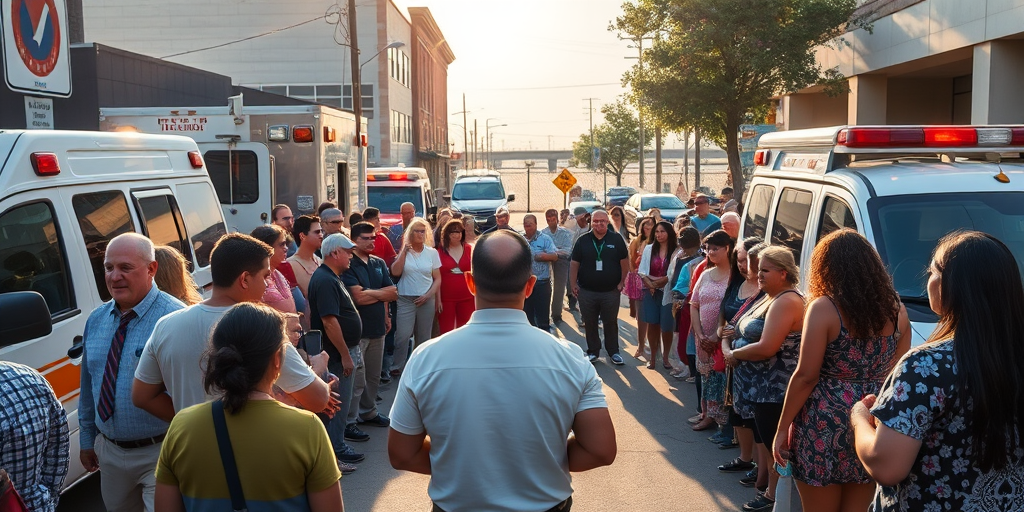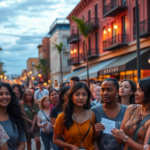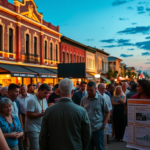McAllen Immigration Attorney Reacts to DHS Self-Deportation Recommendation for DACA Recipients
The Rio Grande Valley, home to many immigrant communities, finds itself at the center of a national debate following a controversial announcement from the Department of Homeland Security (DHS). In a recent statement, DHS has begun advocating for Deferred Action for Childhood Arrivals (DACA) recipients to consider self-deportation. This development has stirred anxiety amongst Valley residents, particularly given its potential implications on the community’s social and economic fabric.
The DHS Directive and Local Impact
The DHS’s directive emphasizes that DACA, a program designed to protect undocumented immigrants brought to the U.S. as children from deportation, does not equate to legal status in America. Nearly 90,000 of these DACA recipients, or “Dreamers,” reside in Texas, according to the Texas Tribune, with a significant number within the Rio Grande Valley.
The agency has taken an unusual step by offering incentives such as $1,000 and a free flight for those willing to voluntarily leave the U.S. The hope, they suggest, is to encourage legal re-entry into the country in the future. However, Tricia McLaughlin, DHS assistant press secretary, clarifies that DACA protection does not exempt recipients from deportation if they breach immigration laws or commit crimes.
Though the offer includes possible legal re-entry, immigration advocates argue that it instills fear rather than provides a pathway, potentially causing undue distress among Dreamers. This initiative has already started creating ripples in the RGV community, as many DACA recipients weigh their options amid uncertainties regarding their futures in the U.S.
Healthcare Implications in the Valley
The implications of increased deportation fears extend beyond the individual, affecting community infrastructure. Healthcare providers across the Valley have reported a noticeable decline in appointment attendance. This pattern of patients avoiding clinics over fear of detention reflects the overarching anxiety permeating the Valley amid heightened immigration scrutiny.
Dr. Clara Ramirez, a healthcare worker from McAllen, observed, “We encounter numerous patients daily hesitant to seek medical care, worried that their visit might become a trap for detainment. It’s heartbreaking to see fear keeping our community from accessing basic health services.”
Healthcare access, therefore, becomes a poignant casualty in this enforcement-focused environment, spotlighting the broader spectrum of issues DACA recipients face beyond immigration status.
Valley Leaders and Legal Advice
In response to DHS’s stance, prominent McAllen immigration attorney Carlos Garcia has urged DACA recipients to explore all viable legal options. Speaking on the matter, he calls for preparedness rather than panic. “DACA recipients should consider consulting with legal experts,” Garcia advised. “This isn’t necessarily a cause for alarm at present, but an opportunity to understand the scope of your legal standing and identify ways to stabilize your future in the U.S.”
Garcia, who has previously argued in support of DACA, stresses the importance of having an action plan and making informed decisions concerning immigration status adjustments. His guidance reflects a broader call within the legal community to support Dreamers with sound advisement amid shifting policy landscapes.
Wider Community and Political Effects
While immigration enforcement and policies have always resonated deeply within border communities like the RGV, recent developments have heightened uncertainties. The communication from DHS inadvertently sends a message to Dreamers that their presence in the U.S. may be temporary, contributing to feelings of instability within immigrant communities.
Alongside anxieties stemming from deportation fears, local crime, political developments, weather updates, and community affairs create a complex web of factors influencing daily life in the Valley. Notably, elections in Cameron County introduce additional layers to ongoing discourses, with political figures like Judge Eddie Treviño Jr. campaigning in a climate where immigration remains a seminal issue.
Furthermore, logistical challenges such as reduced crossings at international bridges amplify the socio-economic landscapes impacting residents and businesses alike. These developments collectively foster a climate where fear, adaptation, and resilience interact.
Community Support and Next Steps
The current climate calls for empathetic and evidence-based measures, urging local leaders, advocacy groups, and residents to collaborate on ensuring community cohesion. Public forums and accessible legal aid are crucial resources in reinforcing support networks, while transparency and dialogue from governing bodies play pivotal roles in mitigating fear.
Residents seeking legal guidance are advised to contact local advocacy groups or consult with attorneys specializing in immigration law. Such initiatives could provide the necessary support to Dreamers facing uncertainties and protect the Valley’s thriving diversity.
As this situation unfolds, one fact remains clear: the impacts of immigration policy extend far beyond the legalese, touching lives, families, and cultures throughout the Valley. Whether through informed advocacy or policy response, the Valley community continues to exemplify resilience in the face of challenges, embodying hope and unity amid trials.







